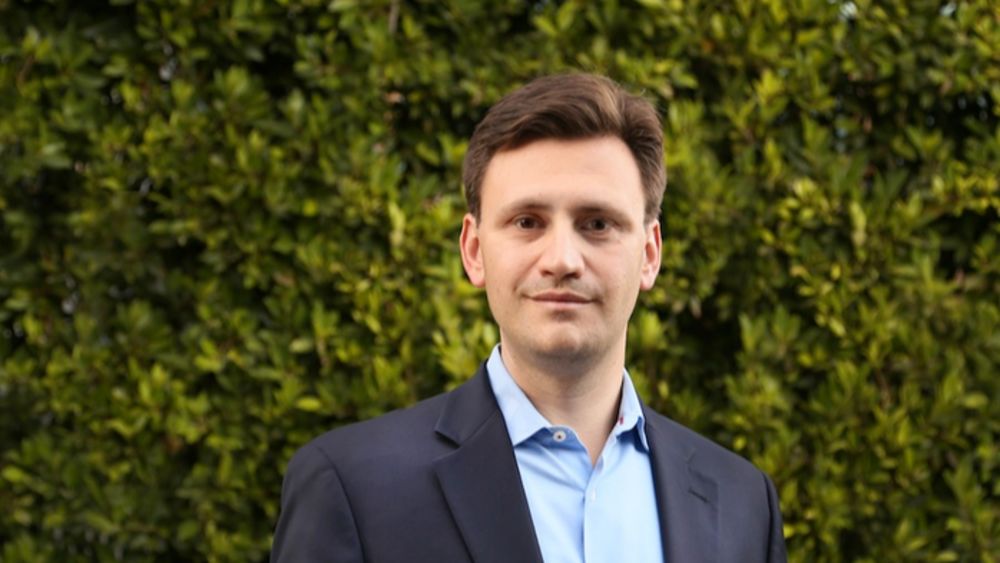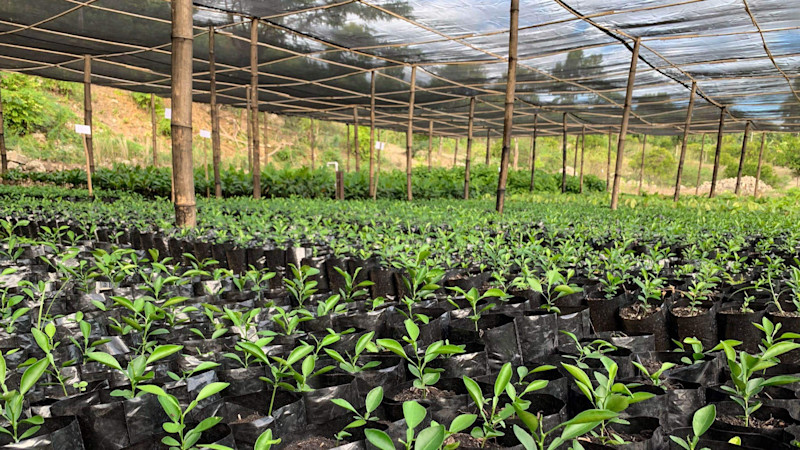- Iterate
- Meet The Team
- Communism, Al Gore, and Aspiration: On Andrei Cherny's Quest for Impact
Communism, Al Gore, and Aspiration: On Andrei Cherny's Quest for Impact
Almost 50 years after his parents fled a Communist regime and created a life for themselves in California, Andrei Cherny has found the right avenue for his sense of social responsibility.

In the 1960s, when Communism was in full swing in Czechoslovakia, a couple named Helena and Pavel Cherny were asked to spy on a group of friends. This was an artistic band of dissidents, authors and filmmakers and poets and people like Václav Havel, who eventually became the first President of the Czech Republic. The Cherny’s refused the request from the government. Shortly after, they were told it was not a request, and were given two weeks to pack and say goodbye to everything they had ever known.
The young couple landed in California’s San Fernando Valley, near Los Angeles, and had to start over. Pavel found work in a liquor store, while Helena started her days at a watch factory and ended them doing paperwork for an insurance company. A few years later, in August 1975, Andrei Cherny was born.
Andrei was, like many first-generation Americans, a kid privy to the larger forces at play around economic opportunity in the U.S. His parents worked five jobs between them at times and often had to rely on food stamps. Money was tight for years. But as a result, he grew up witnessing two people working to make the best out of a hard situation. Dr. Helena Cherny went back to school, starting with remedial education classes before getting her PhD in Psychology, while Pavel became a public school teacher in L.A.
This dynamic impacted a young Andrei in several ways, the most noticeable being the manifestation of a strong sense of social responsibility. It’s why he volunteered for Democratic presidential candidate Michael Dukakis’s campaign at the age of 12, how he became the youngest speechwriter in White House history, the reason he ran for public office and enlisted as a Navy reserve officer and published books on policy and history and accomplished all of these other things.
It’s also why, when he first sat down with progressive entrepreneur Joseph Sanberg, the conversation was not about what kind of business they could start. It was about how they could make the greatest impact on the world together.
In 2013, Andrei and Sanberg co-founded Aspiration. The neobank offers consumer-first banking and investing through no-fee ATMs and transfers, all with a focus on impact and sustainability. There are environmental investment funds, round-up donation programs, and cashback bonuses for socially conscious spending. On top of that, Aspiration donates a substantial 10% of its annual revenue to charity.
After eight years in business, Aspiration says it has signed up more than 2 million customers. The company has raised , including a in May, and actor Leonardo DiCaprio is a board member. Talk to Andrei, the CEO, and he’ll quickly mention that Aspiration’s gross profit more than doubled in 2020 but will then spend several minutes on the company’s initiative, in which customers can plant a tree every time they round up a purchase.
Launched in April with partner Eden Reforestation Projects, Aspiration has already planted over 3 million trees. For context, there are around 20,000 trees in Central Park. Aspiration is now responsible for more planted trees than that per day.
“I often say that we started Aspiration not to build a bank, but to build a better world,” Cherny said in an interview with The Org. “What we're doing at Aspiration is a vehicle to bring to life a way of addressing issues like economic justice and the climate crisis. ... Whether it was working public policy or running for office, those are very different kinds of experiences, but all really with the same North Star of what I was trying to build towards. Aspiration was another way to advance those same causes that I had been fighting for my whole life.”

Even with a breadth of experience in other fields, Andrei’s time in politics - he’s run unsuccessfully for public office on the state level three times and once served as chairman of the Arizona Democratic Party - is what gave him insight into two crucial pillars of Aspiration. The first is how large-scale change actually happens. He realized that without a platform that made sustainable investing accessible and easy, proving the market demand to the politicians making policy decisions would be impossible. The challenge was not to try and convince the public that investing can be done without fossil fuels, but to give them a frictionless tool with enough financial advantages to where opening an account would make sense even without the social impact.
The second is climate change. Just a few months after graduating from Harvard, Andrei became a speechwriter for Vice President Al Gore. This was 1997, before Gore won a Nobel Prize and before climate change was even a public term. For more than a year, Andrei traveled with the VP, writing speeches for a man fighting a very lonely battle. The public didn’t care about climate change and neither did the Democratic Party. They called him Al Bore and told him to focus on something else.
He didn’t. Gore’s dedication to a healthier planet was ultimately a large reason he lost the 2000 Presidential Election. This personal activism, however, left a huge impact on his 22-year old speechwriter.
“Al Gore paid an enormous price for his leadership on the issue of climate change,” Cherny said. “That absolutely was an experience that imprinted the deep, existential importance of fighting climate change at that very young age, and something that's still a through line to what we're doing today at Aspiration.”
The interesting thing about Aspiration’s website is how little focus there is on convincing people that impact investing and banking is the "right" solution. It’s not preachy or judgemental, no section on the genius of an Inconvenient Truth. It’s actually a fairly simple sell: We believe in these ideals, and if you do too, here’s an easy way to link your money to your belief system.
Almost 50 years after his parents fled a Communist regime and created a life for themselves in California, Andrei has found the right avenue for his sense of social responsibility.
“That's really how you build change at scale, building into what people are already doing, making it easy to allow people to do good but also to do well for themselves financially at the same time,” Andrei said. “If you can combine all those things together, you really have the building blocks of substantial change. That's why our customers are coming to Aspiration, because they want to be part of that mission and part of a community that's really bringing the issues they care about to light.”

--
The Org is a professional community where transparent companies can show off their team to the world. Join your company here to add yourself to the org chart!
In this article


The ÂÜŔňÂŇÂ× helps
you hire great
candidates
Free to use – try today
